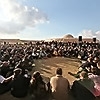 Question: A generation is a collection of people living in a certain historical period of time. It can be identified according to three criteria: one shared historical era, shared specific patterns of behavior, and a certain shared collective life experience in it.
Question: A generation is a collection of people living in a certain historical period of time. It can be identified according to three criteria: one shared historical era, shared specific patterns of behavior, and a certain shared collective life experience in it.
In what periods would you divide generations based on the laws of nature?
Answer: Observing our history over thousands of years, it is possible to divide the eras according to some specific criterion. Since I am engaged in the science of Kabbalah, I divide everything that happens in our world, including generations, according to humanity’s aspiration to the goal of creation.
Therefore, the period starting from ancient Babylon when the method of Kabbalah was created under the leadership of the ancient Babylonian priest Abraham, who made a spiritual revolution and called people to unite on the principle of “love your neighbor as yourself,” is very important for me.
Remark: In the holy books, this generation is called the generation of the diaspora.
My Comment: Indeed, it gave impetus to the dispersion of people around the globe. The next generation is the generation of the exodus from Egypt, the realization of egoism as evil, the rise of the group of Abraham above their egoism.
Question: Ten generations passed from Adam to Noah and from Noah to Abraham. What did the sages base their judgement on dividing these generations and giving them names, for example, “the generation of the desert”?
Answer: We are talking about a group of people who lived in the urge to find the meaning of life, to reveal what governs humanity, the reason and purpose of its origin, and where it goes. Therefore, first of all, it is necessary to determine what can be called a generation. I believe that it is the aspiration that people have regarding the purpose of creation. That is how I divide all historical intervals into generations. They are very different at that. There are generations that may be a thousand years old, and there are those that change over the course of several decades or even less.
[269860]
From KabTV’s “The Post-Coronavirus Era” 5/21/20
[269860]
From KabTV’s “The Post-Coronavirus Era” 5/21/20

No comments:
Post a Comment